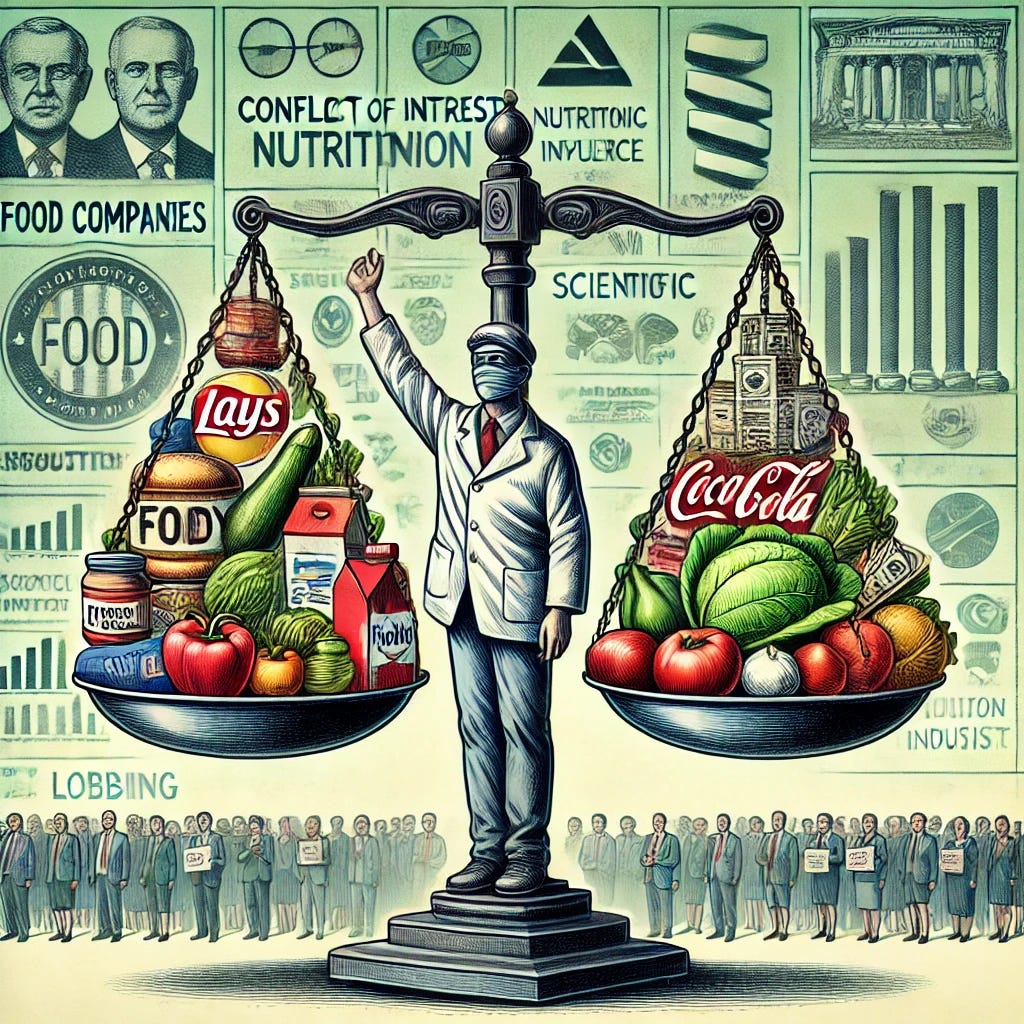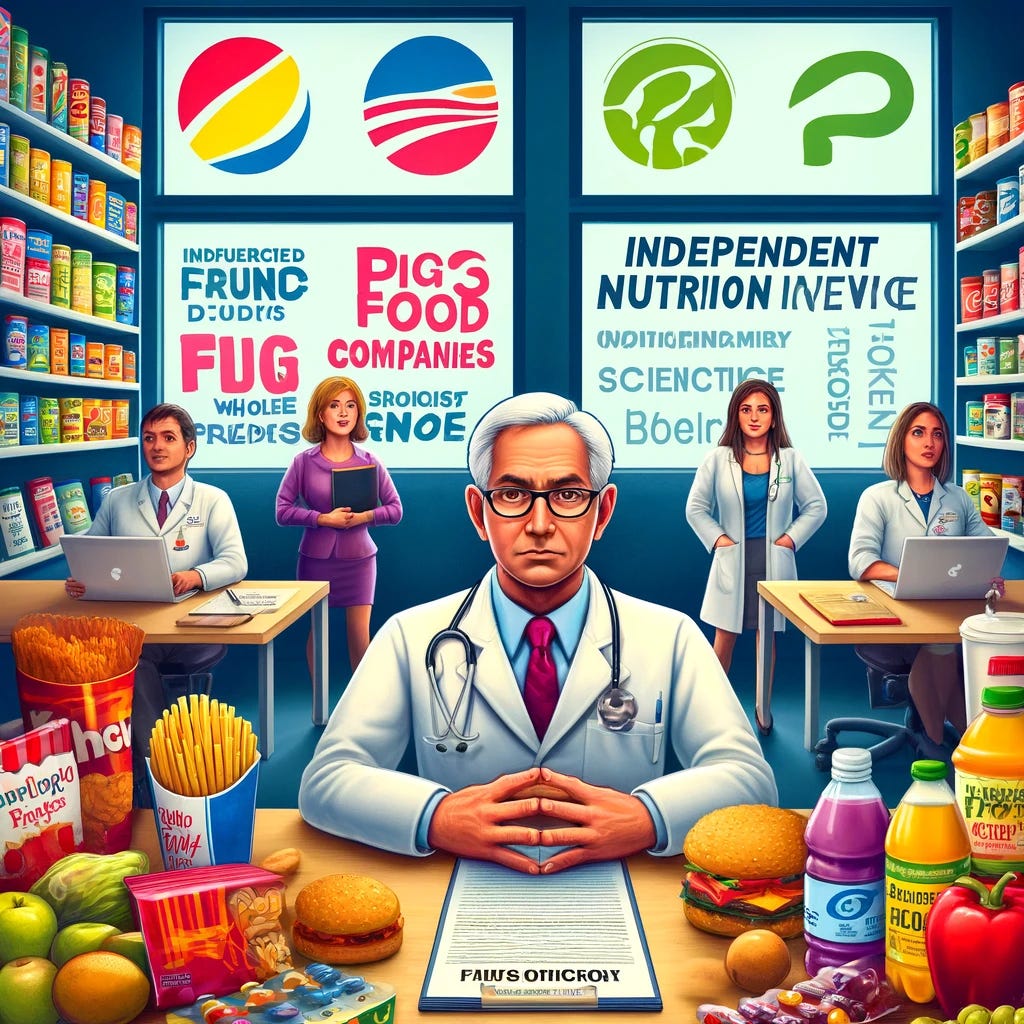The Dietitian Dilemma: Trustworthy Guides or Industry Pawns?
Subconscious Fat with Dietitians

Mr. Skeptical sips his coffee, raising an eyebrow. "So, you're saying we shouldn't trust dietitians now?"
I nod, leaning forward. "Exactly. Many dietitians receive their education from the Academy of Nutrition and Dietetics (AND), an organization shown to have deep financial ties with major food corporations."
He frowns. "That sounds like a conspiracy theory. Got any proof?"
I take a sip of my buttered coffee and get that warm feeling in my stomach because I hoped he’d ask that exact question.
Subconscious Fat at 30,000 Feet
"Absolutely. A 2022 study published in Public Health Nutrition revealed that the AND accepted over $15 million from companies like Coca-Cola, PepsiCo, and Nestlé between 2011 and 2017. The study describes a 'symbiotic relationship' where the AND often acts as a 'pro-industry voice,' sometimes even contradicting its own mission to promote global health." (Source)
Mr. Skeptical folds his arms and puts on a smug face. “I’m just verifying here that you have proof and you’re not trying to deceive me and the readers.”
My eyes narrow. “Below are a few more links from reputable sources.”
Subconscious Fat at 10,000 Feet
Mr. Skeptical leans back, crossing his arms. "Even if that's true, dietitians are trained professionals. They know their stuff."
"But these same corporations often influence their training materials and continuing education. The AND has been criticized for allowing companies like McDonald's and PepsiCo to sponsor educational events and materials. This creates a conflict of interest, as these corporations are vested in promoting their products, even if they're unhealthy." (Source)
"So, you're suggesting we just ignore dietitians altogether?"
"Not necessarily. There are many knowledgeable and well-intentioned dietitians out there. However, it's crucial to be aware of potential biases in their training and the information they provide. As consumers, we should critically evaluate nutritional advice and seek information from multiple sources, especially those without corporate ties."
Subconscious Fat at Eye-Level
Mr. Skeptical sighs. "I see your point, but it's hard to know who to trust these days."
"Exactly. That's why it's important to stay informed and question where our nutritional guidelines and advice are coming from. By understanding the potential influences behind the information, we can make better choices for our health. We should always remember, for example, that medical doctors get very little education in nutrition.”
“I can’t help but think that you are biased. In fact, I’m shocked you haven’t mentioned meat and eggs yet.”
I smile. “Hey, I’ll admit I’m biased.”
Mr. Skeptical leans in. “I didn’t hear you. Can you repeat that?”
I smirk. “I’ve tried and still do a carnivore diet, and I’ve gotten fantastic results and feel great. So have many of my clients. So yes, I’m biased to a carnivore diet.”
Practical Suggestions and Conclusions
“Science can be manipulated and viewed a certain way, especially when the funding comes from big pharma or big food. You’ve just seen evidence that this happens a lot.”
Mr. Skeptical nods slowly. "Alright, you've given me something to think about."
"That's all I ask."
Be aware.
Other links related to this post:
The Tale of Two Scientists
Convenient or Healthy?
Wealth Over Health?
PS Links on LinkedIn, Facebook, and Instagram. Chat GPT was used to research and enhance this post.



